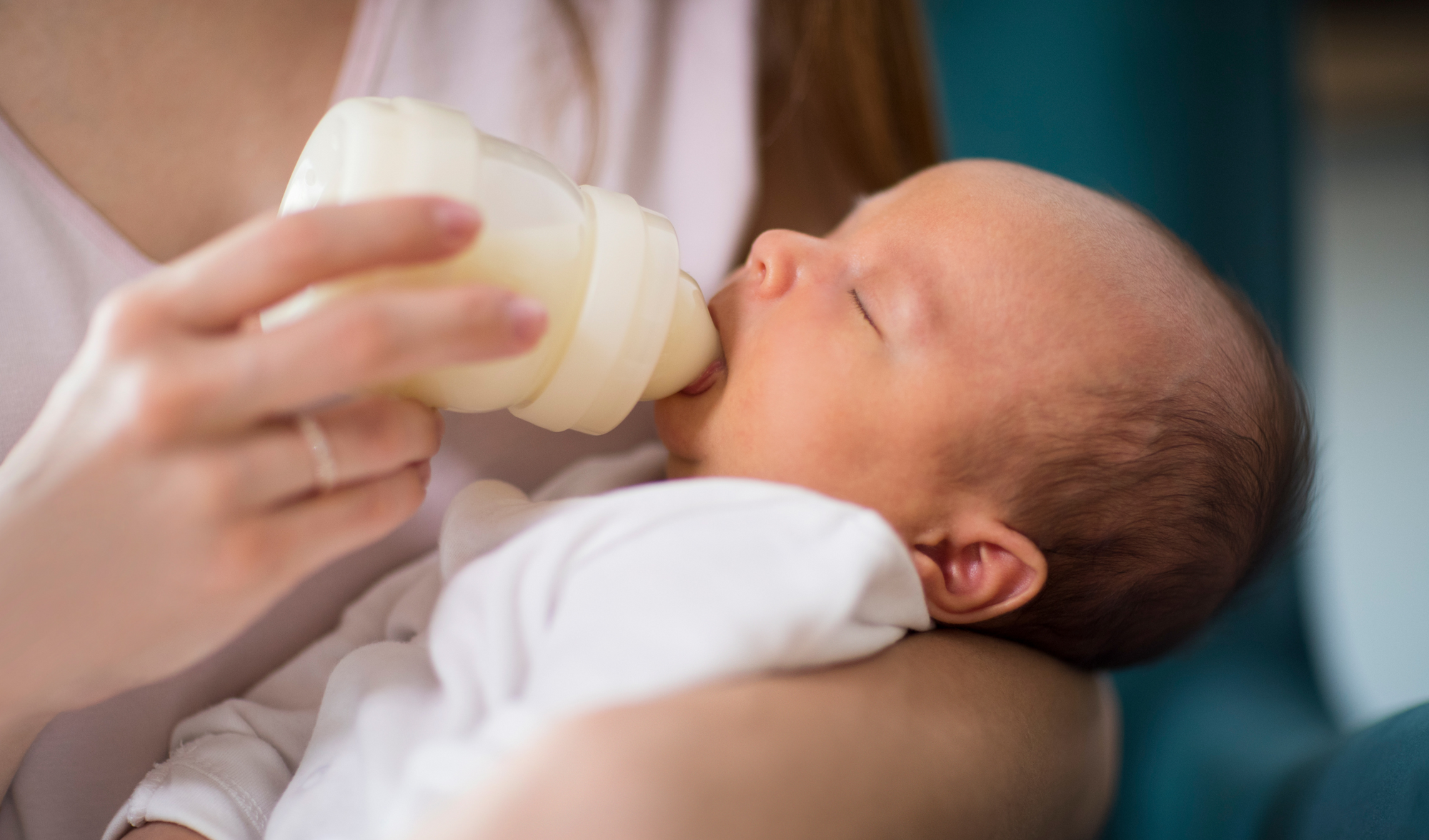Reflux, also known as posseting or spitting up, is an event all too common for new parents. You’ve just put on a brand new top - but your baby’s dinner has reappeared on your shoulder! Reflux, for which the medical term is gastro-oesophageal reflux disorder (GORD), happens when the milk that your baby has swallowed comes back up their oesophagus almost immediately.
Reflux happens when the muscles that separates your baby’s food pipe (oesophagus) and their stomach don’t work, as they are still developing, which means the milk comes back up. The problem should go away once your baby reaches around 4-6 months, and their digestive system begins to mature. Reflux can be uncomfortable for babies, as milk and acid can come back up together, which causes a little bit of discomfort for baby. As baby’s tummies are so small, they often can’t hold much milk, so reflux is a natural reaction to this.
Reflux is rarely cause for concern, and is different from vomiting. Vomiting in the first few months is not uncommon though, and usually simply your baby’s digestive system developing. Vomiting can be quite scary for babies, and they may cry and hiccup. It’s not an immediate cause for concern; just make sure your little one stays hydrated and calm. However, if vomiting is prolonged, or appears to be a strange colour, don’t hesitate to contact your baby’s GP.
In terms of treatment for reflux, there are a few things you can try to make feeding easier for your baby. Listen to them and their cries, and try more frequent feeding if they appear to be hungry. If you bottle-feed your baby, check the nipple size of the bottle and make sure that the hole is not too large. This can speed up the rate at which your baby eats, meaning that more air goes down with the food, causing gas and reflux.
To help reflux, try to burp your baby often. Whether you bottle or breastfeed, it’s useful to burp your baby to ensure excess wind is gone that might cause reflux. Burp breast-fed babies as soon as they come off the nipple, and try to burp a bottle-fed baby if they seem fussy or are squirming; as this will also help.
Luckily, Babocush can help. Our innovative baby cushion helps not only reflux, but also gas and colic, all while relaxing your baby and giving new parents some much needed ‘me time’. Babocush, attached to a baby’s rocker, soothes and calms even the fussiest of babies, holding them in a comfortable and safe position while mimicking the environment of the womb. As the baby lies on his or her front, it also reduces the risk of flat-head syndrome, which has been on the increase since a campaign to lie babies on their backs. Babocush really is an invaluable addition to any household with a newborn – and you can take a look for yourself at all of the happy parents’ reviews on our Facebook Page.


